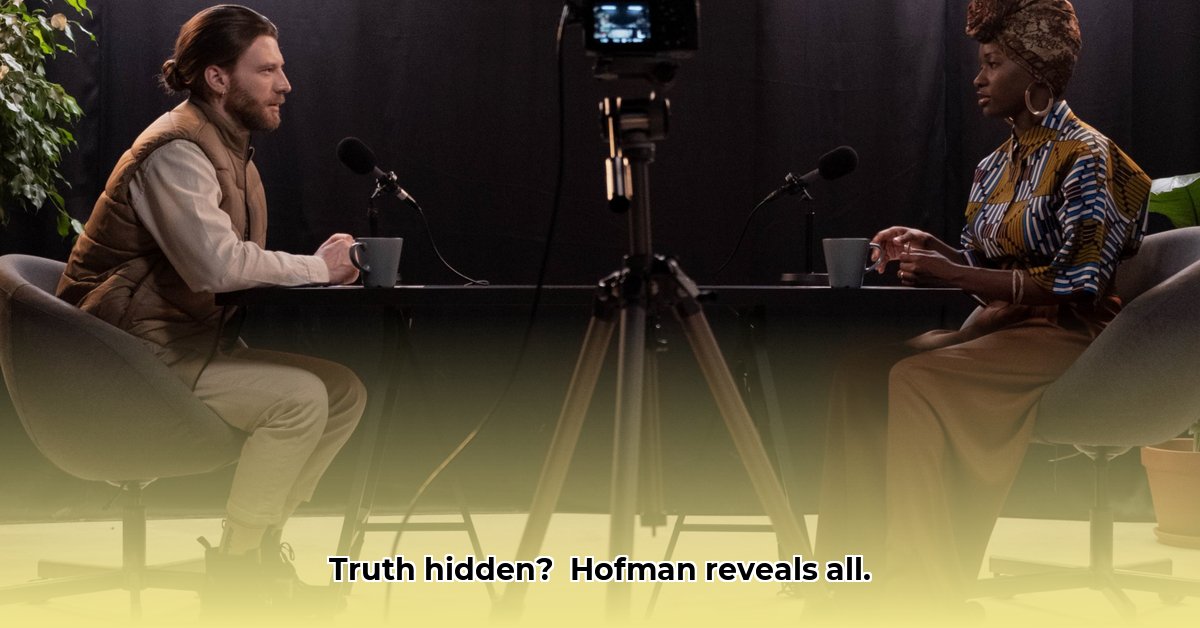
Tim Hofman isn't your average journalist; he's a media phenomenon in the Netherlands, known not only for his hard-hitting investigative journalism but also for his uniquely empathetic storytelling style. His podcasts delve into corruption and injustice, weaving compelling narratives that resonate deeply with listeners. This approach, however, presents ethical complexities and raises crucial questions about the future of investigative journalism.
More Than Just Facts: Hofman's Human-Centred Approach
Hofman's success stems from his ability to seamlessly blend meticulous research with a profoundly human touch. He doesn't just report the facts; he crafts narratives that evoke strong emotional responses. His series, "Over Mijn Lijk" (Over My Dead Body), for example, provides compelling evidence of this. Instead of simply presenting statistics on the struggles of terminally ill young people, he offers an intimate, emotional portrait of their lives, hopes, and fears, transforming cold data into a deeply moving human story. This emotional depth is the key to his podcast's effectiveness: it’s not about simply stating the facts; it's about genuinely showing the audience what's happening and allowing them to feel the emotional weight of those experiences.
The Ethical Tightrope: Compassion versus Exploitation?
Hofman's intimate approach, while powerful, raises ethical concerns. While his emphasis on human stories creates a significant impact, it also carries the risk of exploiting the vulnerability of his subjects for the sake of a compelling narrative or increased viewership. The balance between respecting the dignity of individuals and crafting a captivating story is exceptionally delicate. This reflects a broader issue facing many in investigative journalism. How does one ensure that the emotional intensity benefits those featured and doesn't just generate audience engagement? This question is particularly pertinent for Hofman’s work, forcing us to scrutinise the potential pitfalls of intimate journalism and the responsibilities that come with accessing deeply personal experiences. How far is too far when vulnerability is central to the narrative?
Isn't it crucial to consider the potential long-term effects on individuals featured in such intimate pieces of journalism? How do we ensure their well-being and prevent unintentional harm?
The Challenge of Sustainability: Maintaining Audience Engagement Without Burnout
Another significant challenge for Hofman, and the field of investigative podcasting as a whole, is audience fatigue. Constant exposure to stories of injustice and suffering can lead to emotional desensitization, rendering his powerful message ineffective over time. Maintaining audience engagement without compromising the impact of his work is paramount. How can Hofman—and other investigative journalists—avoid audience burnout while continuing to create high-impact material? The answer lies in finding innovative ways to present sensitive material without resorting to sensationalism. This balance is vital for long-term success and ensuring his message continues to resonate.
"Maintaining a connection with our audience without overwhelming them is a constant balancing act," says Dr. Anya Sharma, a media psychology researcher at the University of Amsterdam. "It's about finding creative ways to deliver difficult truths without causing emotional numbness."
Amplifying Voices and Sparking Change
Hofman's work extends far beyond the confines of the podcast itself; it impacts the broader Dutch media landscape and society at large. His investigations have held powerful individuals and organizations accountable and, in some cases, have prompted significant social change. This impact underscores the power of high-quality journalism to extend its influence far beyond the initial headlines, leading to tangible, meaningful improvements in the lives of people affected. This power, however, hinges upon the trust between Hofman, his subjects, and his audience, a trust that demands constant nurturing and protection.
Strategies for the Future of Investigative Podcasting
Ensuring the long-term sustainability and effectiveness of investigative podcasting requires a multi-faceted approach involving different stakeholders:
Ethical Guidelines and Support: Hofman and his team should formalize and strictly adhere to ethical guidelines, including independent ethical reviews and prioritization of subject well-being. Long-term, they must invest in mental health support for team members, recognizing the emotional toll of this type of work.
Public Broadcaster Support: Public broadcasters should support similar projects through funding, mentorship, and promoting ethical frameworks. Long-term, investment in research on audience responses to emotionally charged content, and in media literacy education to promote responsible listening habits, are essential.
Academic Collaboration: Academics should conduct rigorous research examining Hofman's impact on public opinion and social change. Long-term, longitudinal studies on audience engagement are essential to identify potential for desensitisation and develop strategies for mitigation.
The future of effective investigative journalism demands a careful balance between engaging storytelling and ethical responsibility. This requires a collaborative dialogue among creators, broadcasters, researchers, and the audience, so that projects like Hofman's can successfully continue to make a positive impact.